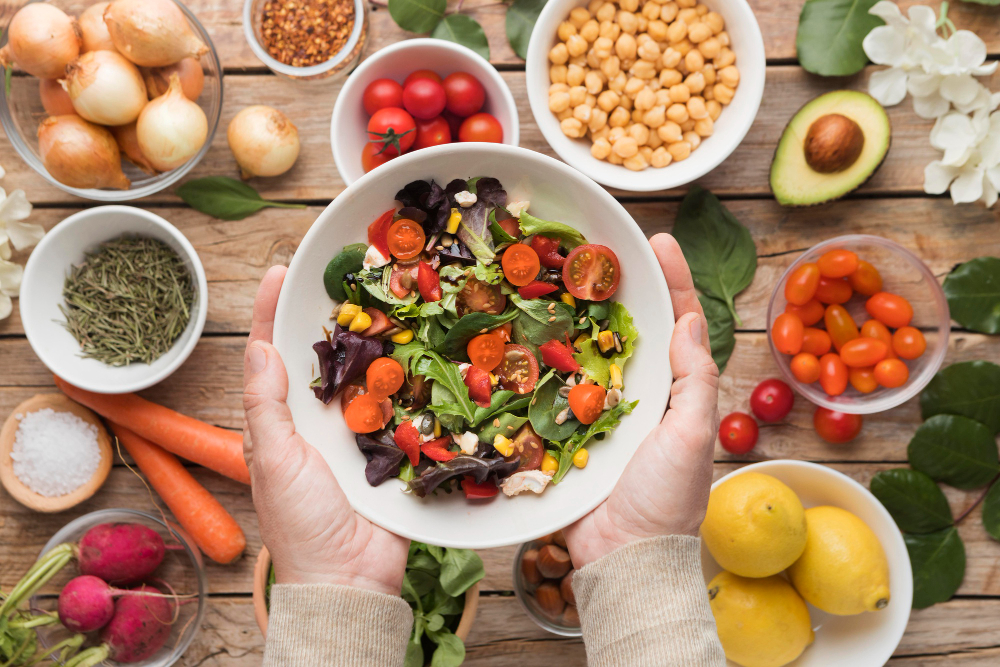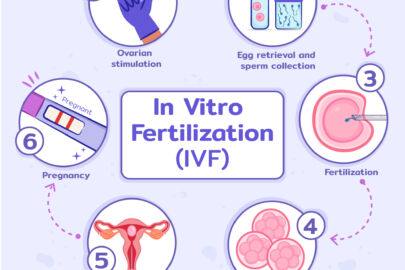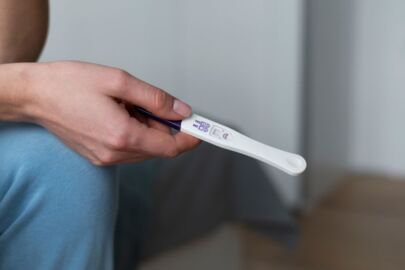
You are what you eat’ is a saying you’ve probably heard so many times that it’s become kind of irritating and tough to fully embrace. But no matter how much you deny it, the food that you consume, your physical fitness, your mental health, and your lifestyle choices have a huge part to play in your health conditions. Especially the fertility of your reproductive ecosystem.
Around the globe, about 15% of couples, totaling 70 million, experience fertility challenges. Half of these cases are linked to obesity or being underweight in women, contributing to reduced IVF success rates and infertility. These conditions may also cause polycystic ovary syndrome (PCOS), affecting menstrual cycles and ovulation. In men, obesity and diabetes can lead to decreased sperm count and motility. Let’s take a look at all the different types of foods that you can include in your diet to improve your fertility and chances of conceiving.
Foods that improve male fertility
Around 50% of infertility issues are caused by men. Over the last 40 years, around 50% to 60% of sperm quality has deteriorated in men. This can be a result of an unhealthy lifestyle, a lack of exercise, and an overall lack of care for well-being. These are some foods that are beneficial if you’re trying to boost your fertility.
Oysters
Oysters are known as the ‘aphrodisiacs’ as they hold immense power to boost fertility in men. It contains the most zinc of all foods, which helps to increase semen and sperm mobility. Zinc is your best friend if you are trying hard to boost fertility. Other foods that contain zinc are beef, poultry, dairy, and nuts.
Fruits and vegetables
Fruits and vegetables that contain antioxidants, such as cranberries, collard greens, mangoes, avocados, spinach, broccoli, and more, help boost fertility. Including vitamin E, B vitamins such as folate, and vitamin C in your diet is essential. Vitamin C-rich foods like oranges, tomatoes, grapes, and sweet potatoes are beneficial. Fruits and vegetables that contain folate help reduce chromosomal abnormalities.
Nuts
Walnuts are key to increasing the quality of your sperm. They are rich in omega-3 fatty acids and antioxidants. But make sure to keep a watch on your potions. Just a handful in a day is sufficient.
Seeds
Pumpkin seeds are rich in zinc and omega-3. You can also try flax seeds, chia seeds, and sunflower seeds to improve the quality of your sperm.
Pomegranate
Pomegranates are rich in antioxidants, which help improve sperm quality. In 2014, a study with 70 men with unhealthy sperm was done in which they were given pomegranate extract tablets with Galanga root for a while. There was a 62% improvement in the sperm mobility of these men.
Fish
Fatty fish such as salmon, herring, sardines, and anchovies are rich in omega-3 fatty acids, which help fertilize sperm.
Foods to avoid when trying to improve fertility for men
Sweetened snacks and sodas
Aerated beverages and extremely sweet snacks are your enemies if you’re trying to boost your fertility, as they have a negative effect on your reproductive health.
High-mercury fish
Fish such as swordfish, marlin, king mackerel, and tilefish are to be avoided as they are high in mercury. Men who were exposed to large amounts of mercury were struggling with infertility, a reduction in erection, and a lower quality of sex.
Caffeine and alcohol
When trying to conceive, it is better to limit your caffeine and alcohol intake, as they decrease your sperm count. But that doesn’t mean that you are prohibited from having caffeine or alcohol. You can have them, but they are under control and in limited portions.
Full-fat dairy.
Full-fat dairy contributes to a lower sperm count in men. These include whole milk, cheese, yogurt, milk, et cetera. Instead of full-fat dairy, choose low-fat dairy options instead.
Processed meat
Processed and aged meats like hotdogs, bacon, salami, and sausages are terrible for your fertility. Studies indicate that men who consume a lot of processed meat have a 23% lower sperm count, as these meats contain hormonal residues that disrupt the reproductive system.
Food that helps boost fertility in women
Omega-3 fatty acids
These are known as the ‘fabulous fats’. Fish that are low in mercury, such as salmon, sardines, tuna, and herring, can boost your fertility. Try incorporating them into your daily diet in small amounts. If you don’t prefer fish, you can also include a handful of various nuts and seeds, such as flaxseeds, seaweed, chia seeds, walnuts, and pumpkin seeds, to improve egg quality.
Vegetable protein
Vegetable protein boosts your fertility, whereas animal protein can decrease it. Beans, legumes, quinoa, amaranth, nuts, seeds, broccoli, tofu, and hummus are great sources of vegetable protein to add to your diet. If you’re trying to conceive, try your best to reduce your animal protein intake. Consuming vegetable protein is said to lower the risk of ovulatory infertility by 50%.
Folate
Also known as folic acid, this B vitamin helps counteract the effects of stress, bringing about a solid improvement in a woman’s fertility. To incorporate folic acid into your diet, consume dark leafy greens, broccoli, Brussels sprouts, kale, asparagus, beets, and citrus fruits. It supports conceiving a healthy baby and is especially beneficial during the early weeks of pregnancy.
Vitamin D
The’sunshine vitamin’ plays a huge role in improving immunity and has anti-inflammatory properties, which will help regulate hormones. It will help improve ovulatory dysfunction, hormonal imbalance, and insulin resistance, thus improving fertility. Foods that are rich in vitamin D include egg yolks, trout, cheese, chicken breast, etc. If your vitamin D levels are low, consider taking daily supplements while trying to conceive or during pregnancy.
Antioxidants
Certain hormonal disorders, such as polycystic ovary syndrome (PCOS), endometriosis, and low ovarian reserve, are linked to increased oxidative stress. Antioxidants protect your body from oxidative stress and slow down cellular aging. They can be found in berries, herbs, and spices.
Foods to avoid while trying to conceive for women
Sugar and artificial sweeteners
Sugar can have negative effects on fertility for both men and women, as it contains inflammation and glycation agents. Excess sugar can cause inflammation of the uterus and ovarian aging, impacting the quality of the egg.
You might think that artificial sweeteners would be an alternative. But that will also have its own response, which will stress your system and be destructive or ovulate. You can instead have maple syrup, honey, or stevia.
Simple and refined carbohydrates
Pasta, bread, and bakery items can rapidly spike your blood sugar levels, wreaking havoc on your fertility. Maintaining stable insulin levels is crucial for fertility, but these foods cause a rise in excess insulin, which can negatively impact ovulation.
Trans fat
Processed foods and junk foods are to be avoided at all costs if you’re trying to focus on your fertility. Say goodbye to takeaways, snacking, and munching on unhealthy foods such as fried food, ready meals, ice cream, et cetera. It will result in insulin resistance, inflammation, and anovulation.
Low-fat dairy
Include high-fat dairy products in your diet, as they are beneficial for female hormones. The process of producing fat from dairy products will release androgens, which are bad for female fertility. It will cause an irregular menstrual cycle and polycystic syndrome.
Conclusion
Always remember that even the most stringent and healthy diet alone may not cure serious infertility issues. It’s important to consult with a doctor before making significant lifestyle changes. Doctors can recommend foods that match your specific condition. Your diet can have a significant impact on reproductive health. Food habits, when combined with fertility treatment, can have a huge and measurable effect on your fertility.
Take the time to plan out a healthy and sustainable plan with your partner. Maintaining the diet is equally important for both women and men, as the fertility of both partners plays an equal role in conception. Switching to preparing simple homemade meals from scratch instead of buying packaged junk food not only supports fertility but also promotes a healthy gut and a clear mind. Taking responsibility for your diet is one of the basic things you can do to enhance your chances of conceiving and support your fertility journey.



